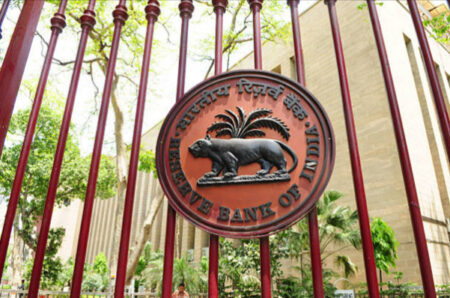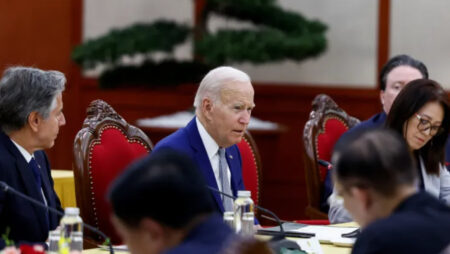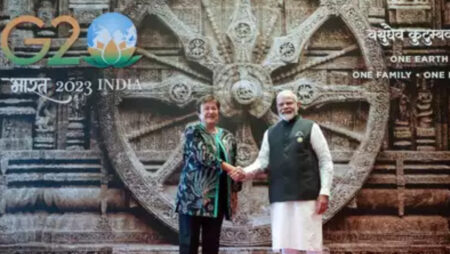The 50th GST Council meeting brought forth a significant announcement for the online gaming industry, as the council decided to levy a 28% Goods and Services Tax (GST) on online gaming, horse racing, and casinos. This decision poses a setback for online gaming companies operating in India. GST’s Impact on Gaming.
GST Council Imposes 28% Tax on Online Gaming
The Goods and Services Tax (GST) Council recently decided to levy a 28% tax on online gaming in India. The tax applies to the total amount of money collected by gaming companies from players and includes both games of skill and games of chance. This decision has raised concerns among industry stakeholders and experts, who argue that such a hefty tax burden will have a significant impact on the cash flows of gaming companies. It is also feared that the tax will hinder foreign direct investment (FDI) in the sector and limit the industry’s potential for innovation and expansion.
The decision to impose a 28% tax on online gaming comes as a surprise to many, as there was no conclusive decision reached by the Group of Ministers (GoM) that was tasked with examining the GST regime for online gaming, casinos, and racecourses. The GoM, chaired by the Chief Minister of Meghalaya and comprising ministers from several states, was supposed to bring uniformity to the GST rates for different aspects of gaming. However, with Goa opposing the 28% tax, the matter was referred to the GST Council for a final decision.
Legal and Regulatory Challenges
The imposition of a 28% tax on online gaming has raised questions about the legal and regulatory framework surrounding the industry. While the Karnataka High Court previously ruled in favour of a gaming company, invalidating a show-cause notice based on a 28% tax rate, the GST Council’s decision to tax all forms of online gaming at the highest rate remains unchanged. This lack of differentiation between skill-based and chance-based games has created uncertainty and challenges for gaming companies operating in India. The forthcoming amendments to GST laws indicate the government’s commitment to enforcing the new tax provisions.
Industry experts and legal professionals have expressed concerns about the constitutionality and fairness of taxing online gaming at such a high rate. They argue that online gaming should be treated differently from gambling and betting activities, as it involves skill-based games and offers a different experience to players. The distinction between games of skill and games of chance is crucial, as it determines the legal status and regulatory framework applicable to different types of gaming. The decision to tax all forms of online gaming at 28% disregards this distinction and has raised questions about the government’s approach to the industry.
Impact on the Gaming Industry and Investments
The new tax structure is expected to have a significant impact on the gaming industry in India. Industry players and independent analysts anticipate that the higher tax burden will restrict the cash flows of gaming companies, limiting their ability to invest in innovation, research, and business expansion. Moreover, the decision is likely to discourage foreign investors from investing in the sector, potentially hindering its growth and development. This could lead to job losses and a shift of users towards illegal betting platforms, impacting the overall revenue generated by the industry.
The online gaming industry in India has been witnessing significant growth in recent years, attracting both domestic and foreign investments. Startups in the online gaming space have raised substantial funding, and the industry has become a significant contributor to India’s digital economy. However, with the imposition of a 28% tax, the industry’s growth prospects could be hampered, leading to a loss of investor confidence and a slowdown in funding. This, in turn, may affect the industry’s ability to innovate, expand, and create employment opportunities.
Concerns for Consumers and Future Outlook
The imposition of a 28% tax on online gaming is expected to have consequences for consumers as well. The higher tax burden on gaming companies may result in increased costs for players, reducing the value they receive from their gaming experience. Furthermore, the uncertainty surrounding the tax implications and the potential impact on the gaming industry’s growth trajectory raises concerns about the future of online gaming in India. The industry and industry bodies have expressed their discontentment with the decision, urging the government to reconsider and find a more balanced approach that promotes growth and innovation in the sector.
The gaming industry has been a source of entertainment and engagement for millions of Indian consumers, with online gaming platforms offering a variety of games and experiences. The imposition of a 28% tax on the total amount collected from players could make gaming less affordable for many users, potentially driving them towards illegal or unregulated platforms. This could have adverse effects, including a loss of consumer protection and increased risks associated with unauthorised gaming activities. The government must strike a balance between taxation and promoting a thriving and regulated gaming industry that ensures consumer welfare and supports responsible gaming practices.
In conclusion, the decision to impose a 28% tax on online gaming in India has raised concerns among industry stakeholders, experts, and consumers. The lack of differentiation between games of skill and games of chance, coupled with the high tax burden, could hinder the growth of the industry and discourage foreign investments. The government needs to address these concerns and reconsider the tax structure to strike a balance between revenue generation, industry growth, and consumer welfare.













